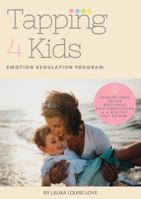“It’s easy to stand with the crowd. It takes courage to stand alone.” – Mahatma Gandhi
We hear a great deal about bullying today and it’s an emotionally charged subject. 1 in 4 Australian students experience bullying, this makes them 2.2 times more likely to have suicide ideation and 2.6 times more likely to attempt suicide. ‘Bullycide’ is a term used to classify a suicide when bullying was a causative factor (highest amongst those aged 10-14 years). A common misconception however, is that bullying only occurs in children. The truth is bullies exist in every stage and strata of life, so we need to learn the skills to deal with it effectively.
Let’s start by clearly defining bullying so we are all on the same page;
Bullying is repeated, persistent behaviour over time. It can be obvious (overt) or hidden (covert).
Bullying IS NOT a single incident of conflict or a fight between equals.
Bullying IS an ongoing and deliberate misuse of power through behaviour, with the intent to cause physical, social or psychological harm.
To summarise bullying has three main features, it involves: a misuse of power, ongoing repetition, and behaviours that can cause harm. What we know from the research is that bullies tend to be depressed and are often in pain themselves. As the old saying goes; hurting people, hurt people. There are many other reasons that people bully such as;
- wanting to dominate
- improve social status
- jealousy (i.e. wanting something you have)
- anger and frustration
- failing to recognise their behaviour as a problem and
- lacking remorse.
Individuals that bully, often spread false information to rile up and enlist groups of accomplices (henchman) to assist their vendetta against a third party. This often means that those being bullied feel unable to stop it from happening and gangs (often relying on gossip alone), feel justified in their disrespectful treatment of the victim.
When it comes to adult bullying, the sad thing is that there is very little you can do to change their behaviour, beyond working within the confines of laws. The good news is that, by recording/reporting incidents of bullying, there are legal and civil remedies for defamation, threats to safety, harassment, significant property damage, malice, theft, abuse and many other things that arise from the bullying behaviour. Accomplices and bystanders are often just as legally culpable as the instigator who rallies their support. You can take legal action, at a future date if necessary. If you are being fed gossip, always go to the person being attacked early on to clarify, don’t wait until a smear campaign has reached full effect which is often the goal of the bully, as the victim likely won’t engage with you. Fact check any information and do not engage in disrespectful behaviour like rumour spreading or actions based on misinformation.
What you have the power to control is your conduct and how you respond. Finding the strength to ignore bullies, be assertive and/or go to the proper authorities can be helpful. You are well within your rights to defend yourself if you are being repetitively abused, stolen from and mistreated in a harmful way. Genuine friends without ulterior motives should reach out to you to show care for your wellbeing and to offer support early. As isolating as bullying can feel, you are not alone, if you need to talk to someone go to https://humanrights.gov.au/our-work/commission-general/get-help-bullying-violence-and-harassment which lists services to support both children and adults. As hard as it can be, you can get through it and come out of being bullied, stronger than ever!





Leave a Reply